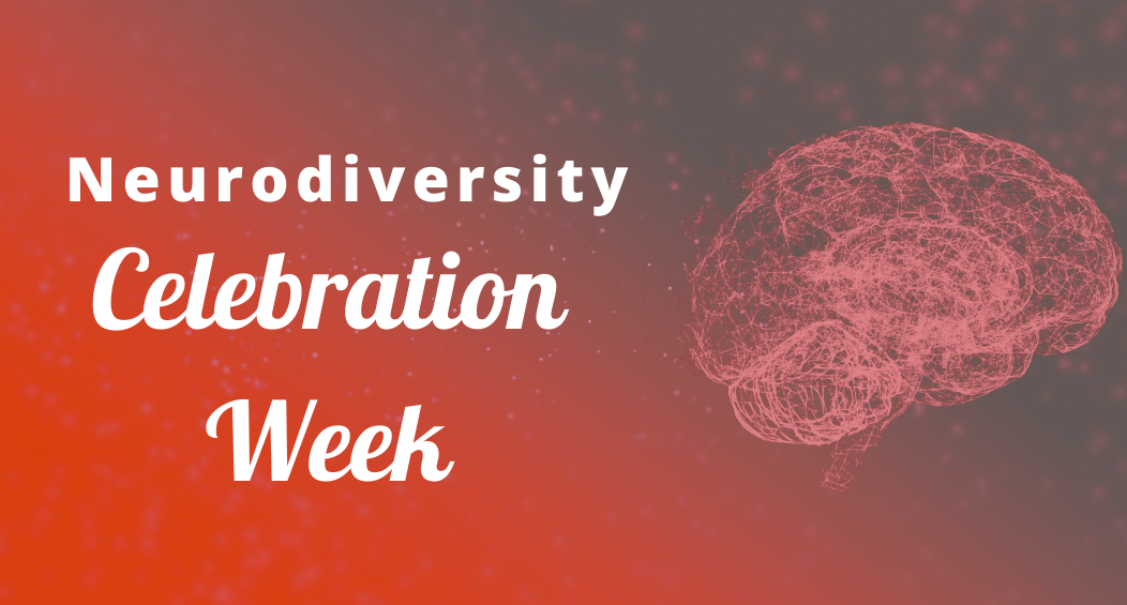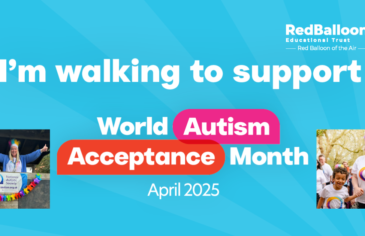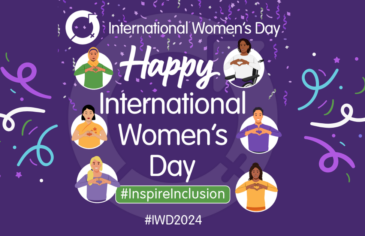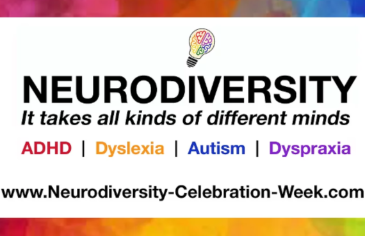Neurodiversity Celebration Week 2022
Today begins Neurodiversity Celebration Week! This week is a global campaign that debunks myths and preconceptions about neurological differences. It strives to change how neurodivergent people are regarded and supported by allowing schools, universities, and businesses to recognise the numerous skills and benefits of being neurodivergent, while also fostering more inclusive and inclusive cultures that value differences and empower everyone.
What is Neurodiversity?
Neurodiversity means that someone differs in mental or neurological function from what is considered “normal.” Many disorders fall under the neurodivergent umbrella, ranging from ADHD, Autism, Tourettes, Dyslexia, Dyspraxia, Down Syndrome, Bipolar Disorder, mental health disorders, and more.
What we are beginning to realise is that it’s normal for people to have different brains that process and learn differently. The concept of neurodiversity recognizes that both brain function and behavioural traits are simply indicators of how diverse the human population is. (Verywell Mind)
Celebrating Neurodiversity
At Red Balloon, many of our young people are neurodivergent. To honour and celebrate this week, we’re listing famous people throughout history and the modern-day that have been neurodivergent and made a difference in the world.
- Bill Gates- Bill Gates was “incapable of learning” (Ayoa) while he was at school. We can’t imagine our lives without computers and Microsoft, and the Gates name is recognised all over the world. However, Gates suffers from dyslexia and didn’t even finish his university degree until 30 years after he left Harvard University.
- Billie Elish- Billie Elish is one of the most well-known pop stars in the world. She is the youngest person and the first woman to win the four main Grammy categories in the same year! Billie has been diagnosed with Tourette’s Syndrome and has accepted her tics as a part of who she is. Nothing has gotten in the way of her incredibly successful music career.
- Kiera Knightly- Kiera Knightly was diagnosed with dyslexia at age six and struggled to read out loud. As a famous movie star, reading scripts is a large part of the job, but despite being a slow reader, Kiera has not let that stop her and is well-known for her role in “Pirates of the Caribbean.”
- Sir Anthony Hopkins- Anthony Hopkins disclosed his Autism diagnosis in 2017. Hopkins has said he considers his Autism as a gift and said he made it through school by working hard to become a successful actor.
- Simone Biles- Olympic gymnast Simone Biles has been diagnosed with ADHD, and is working hard to end the stigma about neurodivergence. Biles has said publicly that ADHD is nothing to be ashamed of and continues to be treated with medication.
There are even more examples of famous people who are neurodivergent, including many historical figures (like Albert Einstein) and it just goes to show that having a different brain is nothing to be ashamed of. All of the people we listed are incredibly talented and successful individuals and being neurodivergent hasn’t stopped them from living their dreams.
Being Neurodivergent at Red Balloon
At Red Balloon, we support all of our students. Supporting our young people who are neurodivergent helps their wellbeing and we make it a focus to encourage and nurture the talents of our students whatever they may be. Often, neurodivergent young people struggle with mainstream schools because mainstream schools often do not have the resources to be flexible and agile in meeting the needs of its diverse population. We provide an alternative form of education that allows for a negotiated curriculum and a lot of individual attention so that the student can learn on their own terms.
We embrace the differences in our young people and love the innovation, creativity and unique perspective each of them brings to Red Balloon. We are proud of every accomplishment and will continue to support all our students, no matter what kind of brain they have!
Find Out More
To learn more about Neurodiversity Celebration Week, you can visit their website.




